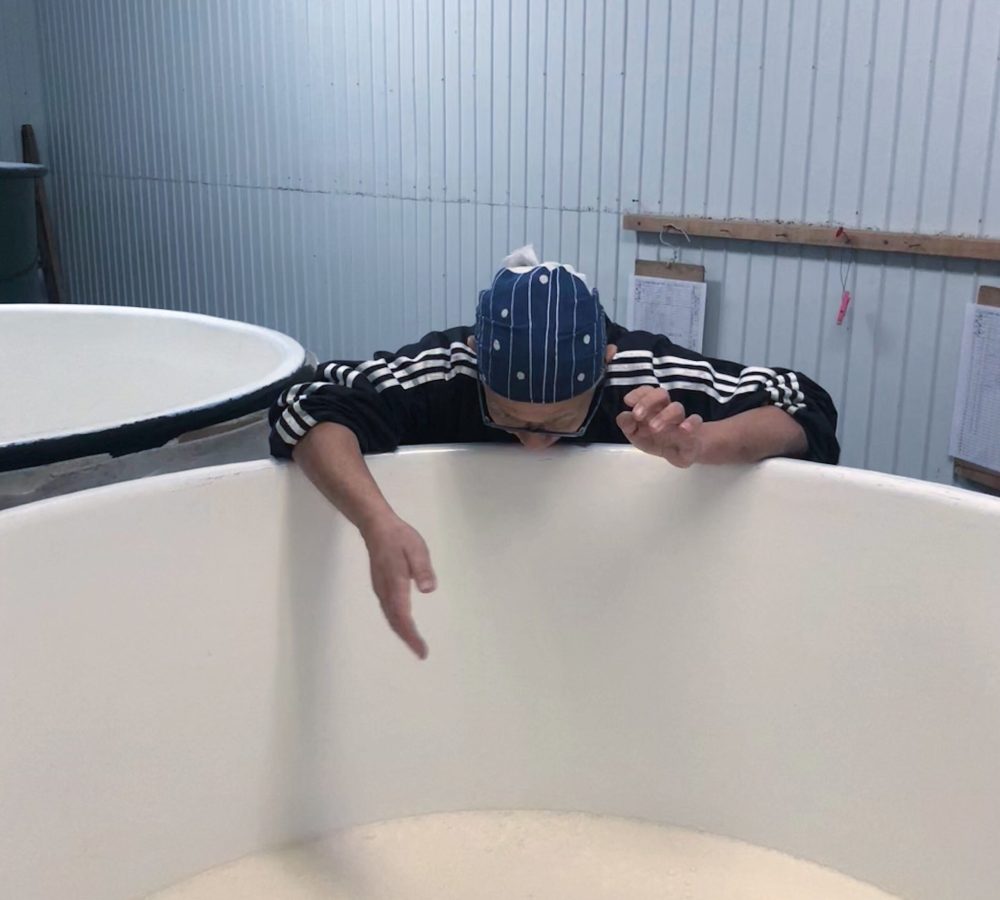Akishika
秋鹿

since 1886
Osaka Prefecture
When Hiroaki Oku took over his family brewery in 2009, he set a new production target: He wanted to slash it by 75 percent. Each year he gets closer to that goal, and Akishika sakes get rarer. His reasoning: he wants to use only the very best rice, and to be at the helm for every step of the process. He’s aiming for what he calls “ikkan-zukuri”, meaning production from seedling to sake.
Oku-san grows organic rice on 25 hectares of local land, using only a distillation of his own sake lees as fertilizer. He won’t use manure, he says, because you can’t be sure what the animals ate. He says he remembers the days when helicopters would fly overhead, spraying chemicals on the rice fields. “On those days you felt terrible. You could tell how much harm it was doing you,” he says. So when he took charge of Akishika, he switched to an all-organic model.
But the benefits aren’t limited to health. When you avoid the nitrogen-based fertilisers, he says, you can grow a better, leaner grain, free of the impurities that can ruin a sake.
He also invested in a milling machine. You don’t often see them in breweries of this size because they’re enormous beasts, they cost about the same as a Lamborghini Huracan, and it’s easy to outsource the milling. But it’s a price you pay if you want to be ikkan-zukuri.
Oku-san says “if it’s not junmai, I’m not interested”, and he stopped all filtering several years ago. His sakes have layers upon layers of flavour and a more-ish streak of acidity. Some are held back to develop for years, just like the finest wines, released only when he believes they’re in perfect drinking condition.
Send us a Message
"If you have good rice, you don't need to mill so much of it away."
Hiroaki Oku

